Biometrics
In the ever-changing world of advanced identification and security, biometrics and biometric systems have moved to the forefront of advancing technologies that are becoming part of everyday life. Our experience includes development, sustainment, and management of large scale multimodal (face, iris, and fingerprint) matching and repository systems as well as design, integration, and fielding of backend biographical and biometric collection systems.Azimuth has supported the operations and maintenance of the large scale DoD and DOJ fingerprint systems. As a result of our biometrics experience, we are very aware of the strengths and weaknesses of biometric systems and devices. We posses an extensive knowledge of open-source techniques and Government challenge events for spoofing and vulnerabilities of biometric systems and sensors. Azimuth has been actively involved in Biometrics and Forensic Science for over 12 years.
Major Program / Systems Supported
- DoD Automated Biometric Identification System (ABIS)
- FBI Criminal Justice Information Services (CJIS) Integrated Automated Fingerprint Identification System (IAFIS)
- Joint Forces Command (JFCOM) in their Capabilities Based Assessment for Biometrics
- National Institute of Justice (NIJ) Sensor, Surveillance, and Biometric Technologies (SSBT) Center of Excellence (CoE) Program
Azimuth Biometrics System Development
Azimuth has gained significant experience with the software and hardware of commercially available and research fingerprint collection devices and systems. Azimuth has designed, implemented, and fielded many fingerprint collection and matching systems using national and international standards. These standards create interoperability and improved lifecycle management for the biometric systems and signatures collected. All biometric systems Azimuth created included integration of fingerprint devices.
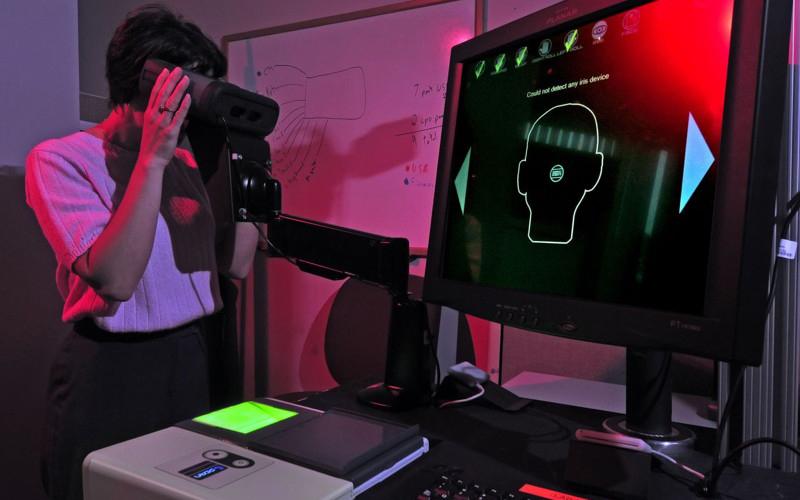
ID ProTECT
Identification-based Decision Processes To Enable Confident Transactions (ID ProTECT) was a prototype DoD Common Access Card (CAC) system designed to establish and exercise a friendly personnel biometrics repository. ID ProTECT interfaces to Defense Manpower Data Center (DMDC) and other access control applications. Azimuth designed, built and tested a high throughput biometric collection system to provide biometric signatures.
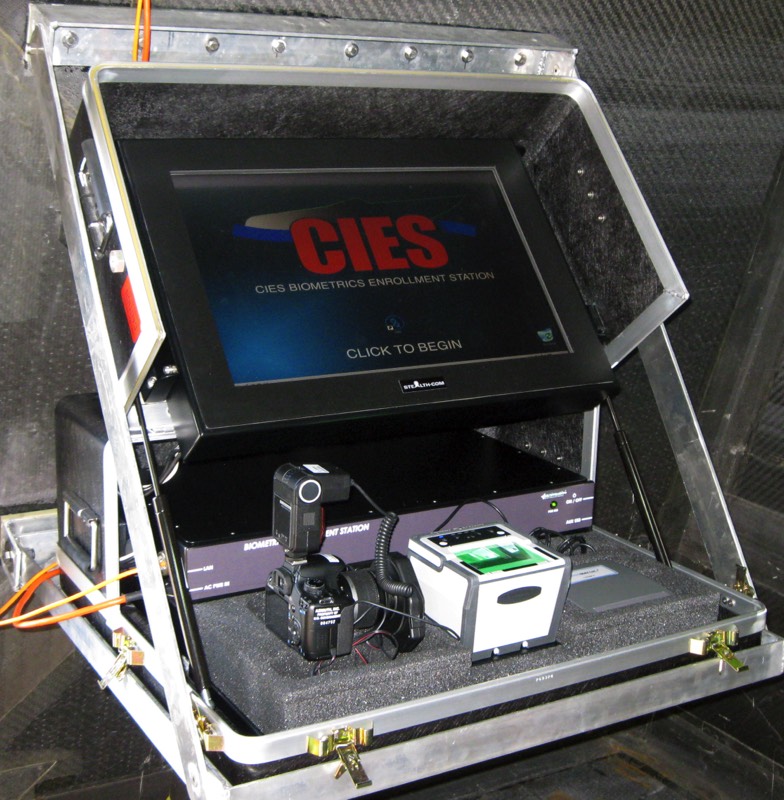
CIES® Biometrics Enrollment System (CBES®)
Craft Integrated Electronics Suite (CIES®) Biometrics Enrollment Station (CBES®) – This biometric project played a vital role in a Maritime Biometrics Technology Demonstration and Experiment in the fall of 2010 in support of a requirement for the Office of Naval Research (ONR). The CBES® integrated a biometrics server and sensors on board the Stiletto that provided logical and physical access authentication services for the boat crew and had a reach back capability to national repositories for persons of interest identification. The event was held on the Little Creek Naval Amphibious Base, Norfolk, Virginia.
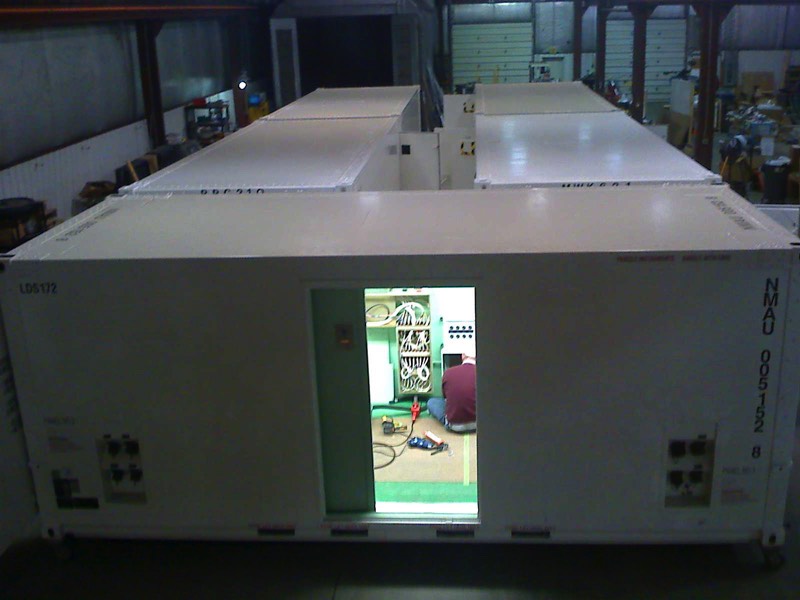
Tactical DNA Labs
When BAE and Naval Surface Warfare Center, Dahlgren Division (NSWCDD) Joint Expeditionary Forensics Facilities (JEFF) Technical Design, Integration and Support Team needed a company to rapidly design and construct tactical DNA laboratory complexes utilizing Mobile Facilities Program (MFP) Shelters, they came to Azimuth. Azimuth refurbished “Fleet Return” containers into a new, usable configuration.
Upgrades included modern Environmental Control Units (ECU), flooring, epoxy paint, and laboratory furniture custom designed by Azimuth. Azimuth designed and constructed a unique overpressure system that maintains a clean working environment matching fixed facility modern hospital standards. The electrical wiring and distribution was upgraded to accommodate sensitive laboratory equipment as well as backup power generation. The laboratory complexes are fully networked to accommodate data feeds from instrumentation as well as NIPRNET and SIPRNET connectivity.
Azimuth Inc. has manufactured five tactical forensics DNA labs that are currently deployed.
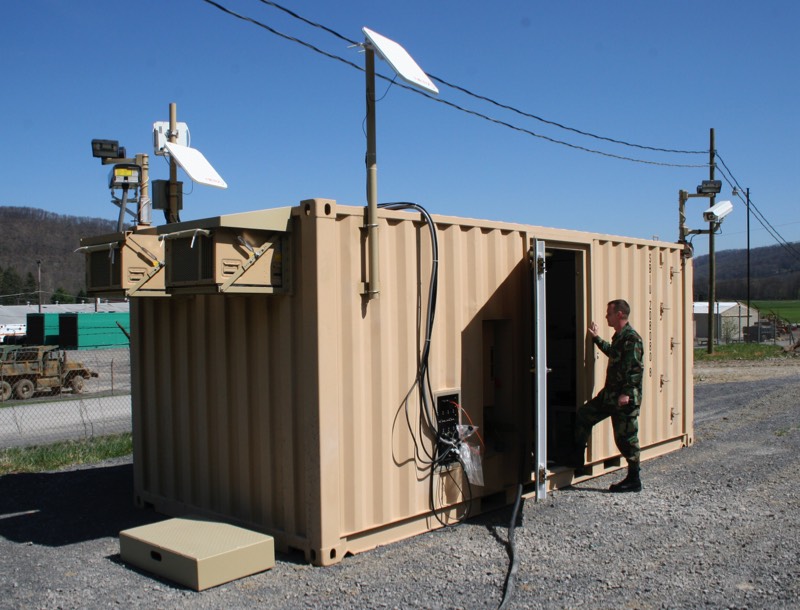
Biometric Identification System for Access (BISA)
U.S. troops face daily threats from terrorists and insurgents with their only refuge often being the safety of U.S. military facilities. The December 2004 suicide bombing of a U.S. military dining facility killed 22 people and demonstrated that bases are not always impenetrable. Thanks to a first-of-its-kind biometric ID system, a team lead by Computer Sciences Corporation fielded BISA to numerous locations. Azimuth is responsible for the design/build of the core system.
With the BISA, the U.S. Military ensures that all foreign nationals with access to U.S. military facilities have been cleared against U.S. databases of known terrorists and suspected enemy combatants. Once cleared, applicants receive biometrically enabled ID cards that must be used every time they enter a U.S. facility.
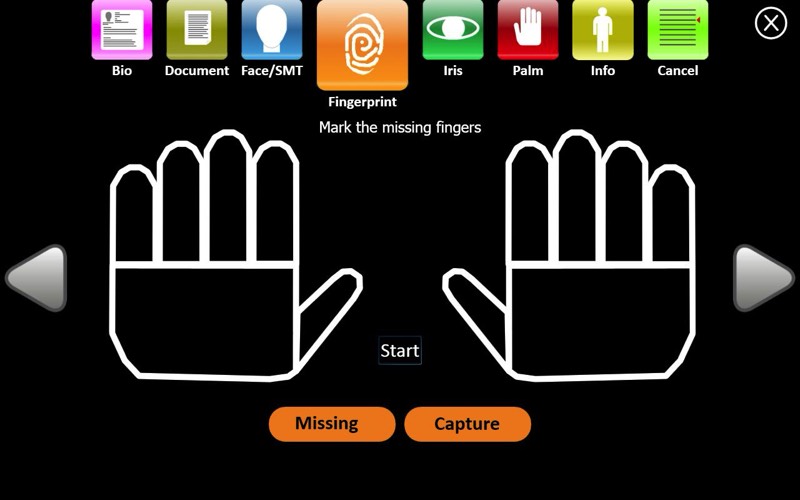
Biometric Collection Integrated Platform (BCIP)
The Biometric Collection Integrated Platform is a biographical and biometric enrollment system which is a Government owned software suite that has a user intuitive interface and is capable of integrating fingerprint, iris, and face capture sensors from many different vendors. The BCIP project lead by SRA, was initiated because current FBI biometric capture and identification platforms (e.g Quick Capture Platform (QCP), Fly Away (FA) Kit) provide remote enrollment submission and identification response capabilities using different operator interfaces and other proprietary technologies.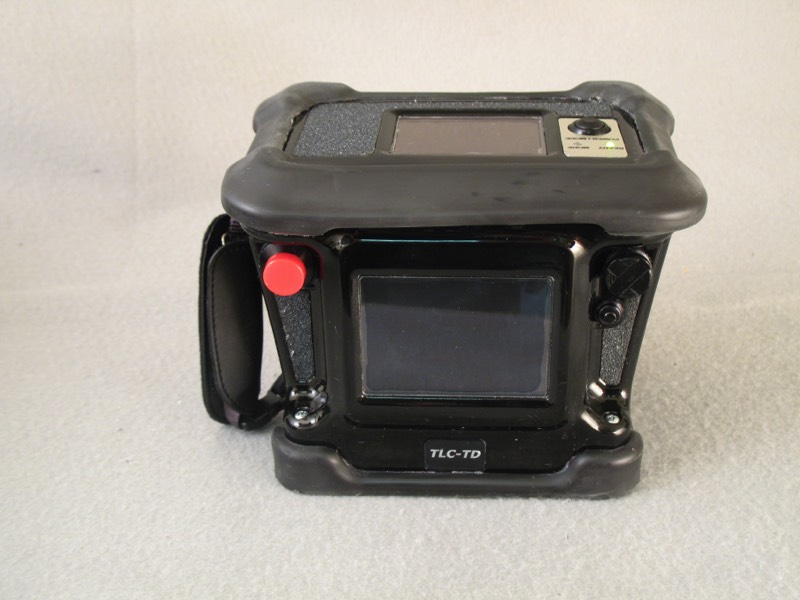
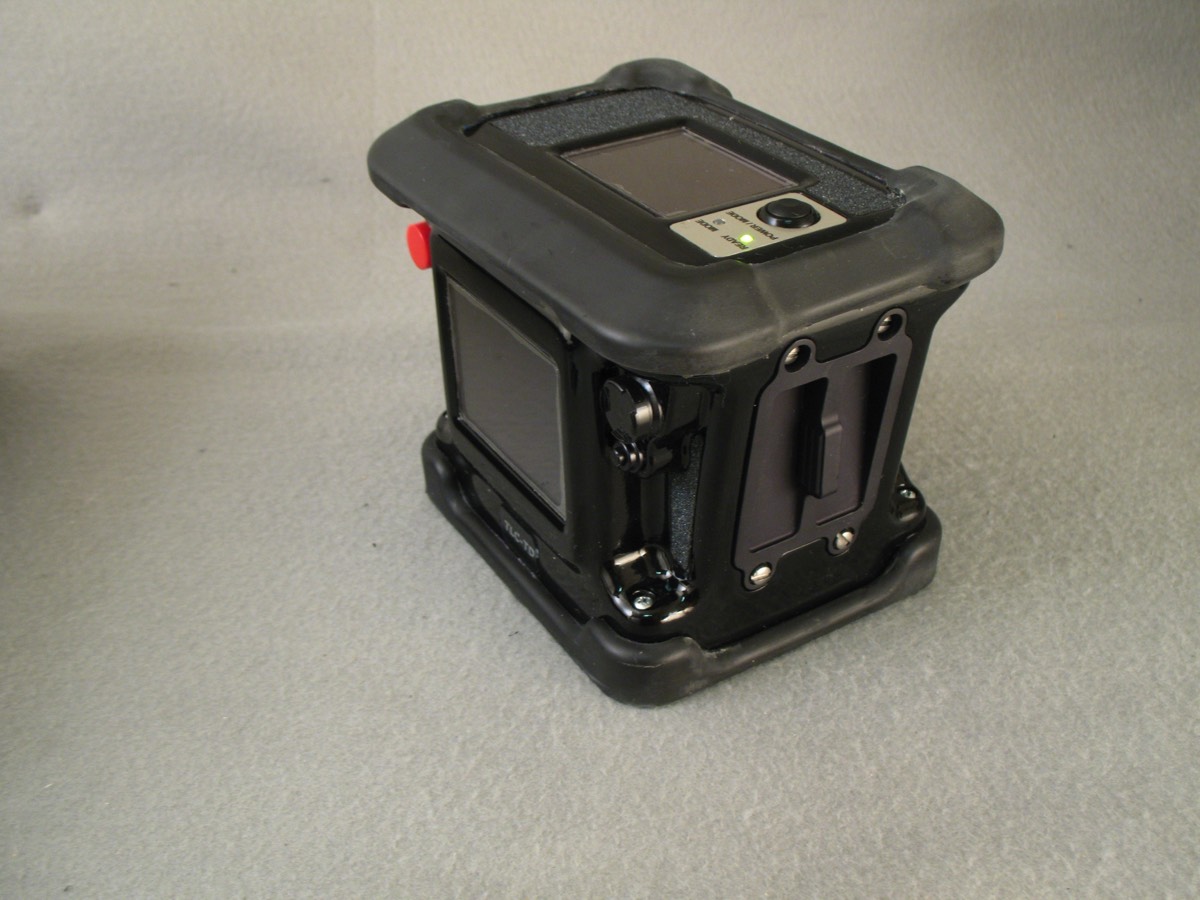
Tactical Latent Camera
The Tactical Latent Camera-Technology Demonstrator (TLC-TD) project was to employ applied Research and Development (R&D) to yield a Technology Demonstrator of relevant technologies for the capture of latent fingerprint images under tactical conditions. Based on previously developed concept models, Azimuth began the development of the necessary components and techniques to optimize latent fingerprint capture.
The TLC-TD has a 4”x3” imaging area. This large imaging area allows for the capture of multiple prints thus using fewer images. The wide field of view also results in better documentation and faster processing. When capturing latent fingerprints, the TLC-TD is automatically configured for a 1000 ppi resolution required for Electronic Biometric Transmission Specification (EBTS) Latent Fingerprint Submission (LFS) transactions. Having the TLC-TD at a set resolution results in less human processing/intervention, improved accuracy, and increased throughput. The TLC-TD is free to capture images independently without the need for any additional computers, lighting, power supplies, etc. Standalone capability eliminates the need to carry additional light sources, power, tripods, and cameras and simplifies preparation.

ID ProTECT
Identification-based Decision Processes To Enable Confident Transactions (ID ProTECT) was a prototype DoD Common Access Card (CAC) system designed to establish and exercise a friendly personnel biometrics repository. ID ProTECT interfaces to Defense Manpower Data Center (DMDC) and other access control applications. Azimuth designed, built and tested a high throughput biometric collection system to provide biometric signatures.

CIES® Biometrics Enrollment System (CBES®)
Craft Integrated Electronics Suite (CIES®) Biometrics Enrollment Station (CBES®) – This biometric project played a vital role in a Maritime Biometrics Technology Demonstration and Experiment in the fall of 2010 in support of a requirement for the Office of Naval Research (ONR). The CBES® integrated a biometrics server and sensors on board the Stiletto that provided logical and physical access authentication services for the boat crew and had a reach back capability to national repositories for persons of interest identification. The event was held on the Little Creek Naval Amphibious Base, Norfolk, Virginia.

Tactical DNA Labs
When BAE and Naval Surface Warfare Center, Dahlgren Division (NSWCDD) Joint Expeditionary Forensics Facilities (JEFF) Technical Design, Integration and Support Team needed a company to rapidly design and construct tactical DNA laboratory complexes utilizing Mobile Facilities Program (MFP) Shelters, they came to Azimuth. Azimuth refurbished “Fleet Return” containers into a new, usable configuration.
Upgrades included modern Environmental Control Units (ECU), flooring, epoxy paint, and laboratory furniture custom designed by Azimuth. Azimuth designed and constructed a unique overpressure system that maintains a clean working environment matching fixed facility modern hospital standards. The electrical wiring and distribution was upgraded to accommodate sensitive laboratory equipment as well as backup power generation. The laboratory complexes are fully networked to accommodate data feeds from instrumentation as well as NIPRNET and SIPRNET connectivity.
Azimuth Inc. has manufactured five tactical forensics DNA labs that are currently deployed.

Biometric Identification System for Access (BISA)
U.S. troops face daily threats from terrorists and insurgents with their only refuge often being the safety of U.S. military facilities. The December 2004 suicide bombing of a U.S. military dining facility killed 22 people and demonstrated that bases are not always impenetrable. Thanks to a first-of-its-kind biometric ID system, a team lead by Computer Sciences Corporation fielded BISA to numerous locations. Azimuth is responsible for the design/build of the core system.
With the BISA, the U.S. Military ensures that all foreign nationals with access to U.S. military facilities have been cleared against U.S. databases of known terrorists and suspected enemy combatants. Once cleared, applicants receive biometrically enabled ID cards that must be used every time they enter a U.S. facility.

Biometric Collection Integrated Platform (BCIP)
The Biometric Collection Integrated Platform is a biographical and biometric enrollment system which is a Government owned software suite that has a user intuitive interface and is capable of integrating fingerprint, iris, and face capture sensors from many different vendors. The BCIP project lead by SRA, was initiated because current FBI biometric capture and identification platforms (e.g Quick Capture Platform (QCP), Fly Away (FA) Kit) provide remote enrollment submission and identification response capabilities using different operator interfaces and other proprietary technologies.

Tactical Latent Camera
The Tactical Latent Camera-Technology Demonstrator (TLC-TD) project was to employ applied Research and Development (R&D) to yield a Technology Demonstrator of relevant technologies for the capture of latent fingerprint images under tactical conditions. Based on previously developed concept models, Azimuth began the development of the necessary components and techniques to optimize latent fingerprint capture.
The TLC-TD has a 4”x3” imaging area. This large imaging area allows for the capture of multiple prints thus using fewer images. The wide field of view also results in better documentation and faster processing. When capturing latent fingerprints, the TLC-TD is automatically configured for a 1000 ppi resolution required for Electronic Biometric Transmission Specification (EBTS) Latent Fingerprint Submission (LFS) transactions. Having the TLC-TD at a set resolution results in less human processing/intervention, improved accuracy, and increased throughput. The TLC-TD is free to capture images independently without the need for any additional computers, lighting, power supplies, etc. Standalone capability eliminates the need to carry additional light sources, power, tripods, and cameras and simplifies preparation.